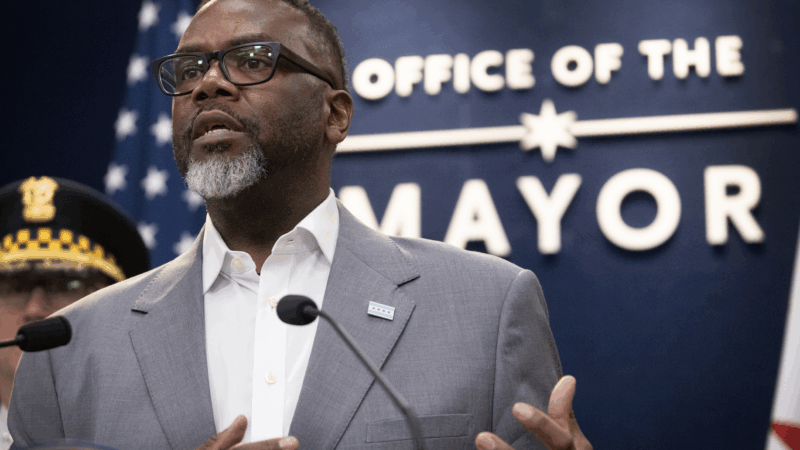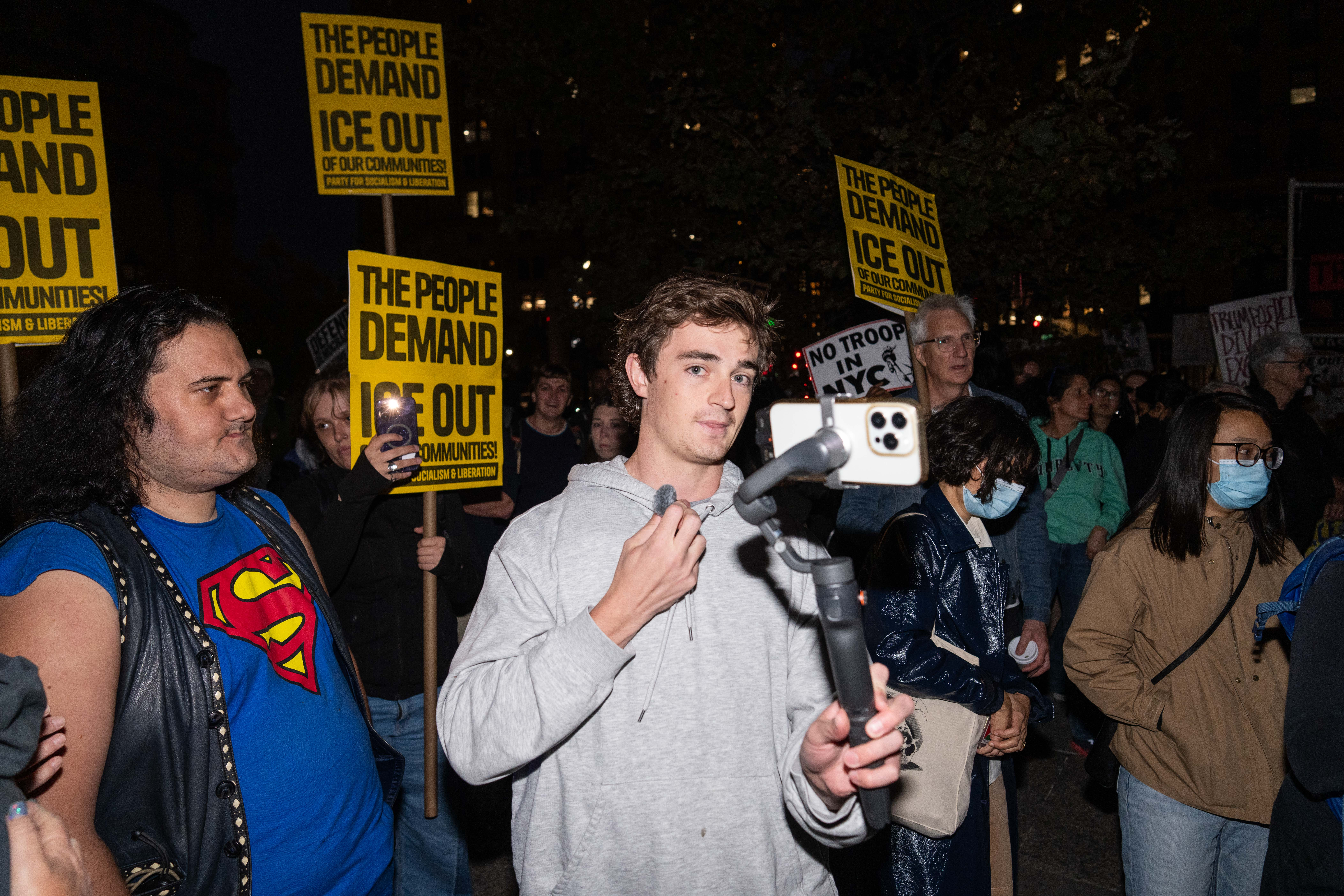Chicago Mayor calls DOJ probe the Trump administration’s latest diversity attack
Chicago Mayor Brandon Johnson says the Department of Justice’s new investigation into whether the city hired people solely because of their race won’t deter him from touting his administration’s diversity.
“We’re not going to be intimidated by the tyranny that’s coming from the federal government,” Johnson said at a news conference after his administration received the letter Monday. “The diversity of our city is our strength.”
The DOJ announced its probe into whether Johnson has “engaged in a pattern or practice of discrimination based on race” after Johnson’s comments to a Black congregation at a southside church over the weekend when he was asked about job and economic opportunities for minority residents.I
In response to the question at the event, Johnson listed top Black officials in his administration and spelled out why he believes diversifying his cabinet helps all residents.
“There are some detractors that will push back on me and say, you know, ‘The only thing the mayor talks about is the hiring of Black people,'” Johnson said. “No, what I’m saying is, when you hire our people, we always look out for everybody else. We are the most generous people on the planet. I don’t know too many cultures that have play cousins.” “Having people in my administration that will look out for the interest of everyone, and everyone means you have to look out for the interests of Black folks, because that hasn’t happened.”
The letter cited the Civil Rights Act of 1964, a landmark win in the fight against segregation of Black Americans that prohibits race-based discrimination. The letter makes clear the DOJ has kept a close eye on Johnson, since it came a day after Johnson made the comments. “Our investigation is based on information suggesting that you have made hiring decisions solely on the basis of race,” the DOJ wrote. “In your remarks made yesterday… you ‘highlight[ed] the number of Black officials in [your] administration.’ You then went on to list each of these individuals, emphasizing their race.”
Johnson compared the city’s hiring and that of the Trump administration’s, which has targeted diversity, equity and inclusion efforts across the country.
“My administration reflects the country, reflects the city, his administration reflects the country club,” Johnson said.
Johnson said Black Chicagoans and other minority residents have long been ignored by previous mayoral administrations and politicians across the country, and that “a rising tide will lift all boats.”
“We are going to show up for the Latino community. We’re going to show up for Asian Americans. We’re going to show up for Black folks in this city. We’re going to show up for the LGBTQ+ community. Any group that has been marginalized and has suffered under tyranny and oppression, we’re going to show up for them,” Johnson said.
The latest census shows that Chicago’s population is 39% white with nearly equal numbers of Latino and Black residents at 29 and 28% respectively and 7 % Asian.
A spokesperson for Johnson said the mayor’s office is 34% Black, 30% white, 24% Hispanic and 7% Asian.
What to know about Nick Shirley, the YouTuber alleging daycare fraud in Minnesota
Shirley is a 23-year-old self-described "independent YouTube journalist" who made prank videos in high school before pivoting to politics. He participated in a White House roundtable in October.
Greetings from Vienna, where an imperial palace hosts a holiday market for all
Far-Flung Postcards is a weekly series in which NPR's international team shares moments from their lives and work around the world.
His brother’s mental illness isolated his family. Now he’s helping other caregivers
When it comes to serious mental illness, family caregivers are crucial partners. But often, they must fend for themselves. A new solution offers them support.
Out with the mayo: How Ukrainians reclaim holiday food
For many people from former Soviet countries, New Year's is a big holiday feast time. A Ukrainian restaurant in Washington gives NPR a taste of what's on the menu.
Farmers are about to pay a lot more for health insurance
Tariffs, inflation, and other federal policies have battered U.S. farmers' bottom lines. Now many farmers say the expiration of federal health care subsidies will make their coverage unaffordable.
50 wonderful things from 2025
Each year, critic Linda Holmes looks back on the year and compiles a list of the things that brought her joy.







